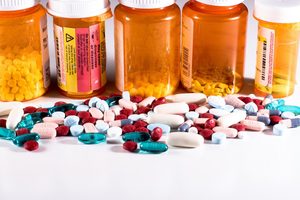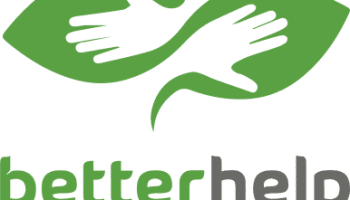
Spotting A Relapse In A Loved One
Recovering from an addiction is never easy, and there are many bumps and obstacles along the way. One of those bumps is a very common, often expected part of getting sober: relapse.
Studies show that for one year outcomes across alcohol, nicotine, and illicit drugs, more than 85% of individuals will experience a relapse within one year following treatment. While the signs and symptoms of relapses exist on a wide spectrum, there are many that may be difficult to spot for those who may not be close to the person who has relapsed. These symptoms, which are often behavioral, may be easier for loved ones or close friends to spot.
Recognizing the more intimate, subtle signs of a relapse can help you find treatment and support for your loved one before a relapse becomes dangerous or potentially life-threatening. Whether you’re a friend, family member, or spouse, it’s important to understand the changes that a relapse can have on a person’s mental, emotional, and physical health.
Understanding Why Relapses Happen
While relapses are an incredibly common part of addiction recovery, the factors behind what causes them are different for everyone. For some people, relapses are caused by the re-emergence of past mental health conditions, such as depression or anxiety. These mental health conditions can be difficult to cope with and may cause some to turn to drugs or alcohol to cope.
For others, relapses can be caused by hardships in their lives after leaving treatment, such as a loss in the family or financial hardships. These sudden, often extremely difficult, situations can quickly derail someone’s sobriety, leading to relapse.
Some of the most common causes of relapses include:
- Isolation
- Medical issues
- Relationship difficulties
- Financial hardships
- Trauma or major life events (such as the death of a loved one)
- Work troubles
- Mental health conditions
- Lack of support
Although relapse can start with subtle, gradual resumption of alcohol or the drug of abuse, an underlying addiction can become full-blown very quickly. One of the most dangerous outcomes is overdose, as small periods of sobriety can decrease tolerance, especially to drugs like Opioids. Attempts to resume usage at amounts previously tolerated can lead to devastating and unfortunate consequences like death.
Looking for a place to start?
Join the thousands of people that have called a treatment provider for rehab information.
Free and confidential
Available 24/7
Access to professional treatment
5 Signs Of A Relapse In A Loved One
While relapse is common, the signs and symptoms that accompany them can vary greatly from person to person. Recognizing these signs isn’t always easy; however, those closest to someone in recovery are more likely to notice them.
Below are some of the most common signs of a relapse in a loved one.
Changes In Their Behavior
Those suffering from substance use disorders may go to great lengths to hide their relapse and defend themselves, especially if accused of resuming drug or alcohol use. They often feel guilty and ashamed, with thoughts that they have failed, further worsening their substance abuse to escape. As a defense, persons may attempt to rationalize behaviors their loved ones may call out or gaslight those questioning relapse-associated behaviors.
Someone who has relapsed may also undergo other emotional and behavioral changes. Some of these changes may include neglecting responsibilities and sudden changes in their demeanor or attitude, such as increased moodiness, irritability, or negativity. For those that have become accustomed to their loved one thriving in recovery, these changes can be very easy to spot.
Mental Health Concerns
One of the most common signs that your loved one has relapsed is the appearance of a mental health condition. This may be a new mental health disorder that was suddenly brought about by substance abuse or a preexisting mental health condition that may be exacerbated by drugs or alcohol. Oftentimes, the symptoms of a substance use disorder can also appear to mimic the symptoms of a mental health condition.
Some of the most common mental health conditions experienced by people who relapse are depression, anxiety, and post-traumatic stress disorder (PTSD). While these mental health conditions are very different, some of the most common symptoms shared between them include:
- Feelings of extreme sadness
- Worrying uncontrollably
- Increased agitation
- Withdrawing from family, friends, or work
These mental health conditions may also be a risk factor that can contribute to a relapse, especially when not properly addressed.
Paid Advertising. We may receive advertising fees if you follow links to the BetterHelp site.
Online Addiction Counseling
Get professional help from an online addiction and mental health counselor from BetterHelp.
Start receiving support via phone, video, or live-chat.
Avoiding Pro-Recovery Behaviors
Pro-recovery behaviors are behaviors that are learned during addiction treatment and that are meant to promote sobriety. Examples of pro-recovery behaviors may include things like attending support groups, seeing a therapist, or volunteering at a charity or local organization. When a loved one distances themselves from these behaviors or stops altogether, it may be a sign they have relapsed.
Resuming Old, Negative Relationships
Another major sign a loved one has relapsed is if they have returned to or surrounded themselves with people, places, or situations that promote drug or alcohol use. These include frequenting places like bars or clubs or hanging out with people who still use drugs or alcohol, which are often referred to as anti-recovery behaviors.
While it can be extremely difficult, severing ties with old friends, locations, and acquaintances associated with alcohol or drug use is an essential part of recovery. Reconnecting with these individuals can significantly increase the likelihood of relapse.
Changes In Physical Appearance
Perhaps one of the most noticeable signs of a relapse is the physical changes that can occur. These physical symptoms include both changes in appearance as well as symptoms of drug or alcohol abuse that may change the way a person looks.
Drug and alcohol abuse can quickly surpass every other priority in a person’s life, including their own personal hygiene and appearance. Someone who has relapsed and is using drugs or alcohol again may appear less “kept” than they usually are. You may also notice changes in their appetite or weight, such as sudden weight gain or loss of appetite.
For loved ones that may use intravenous drugs, such as Heroin, they may have marks on their skin from injecting themselves, also known as track marks. Other illicit substances, like Methamphetamines, may cause someone to pick at or itch their skin, which may cause visible scrapes or cuts.
What To Do If You Suspect A Relapse
If you suspect that your loved one is showing signs of a potential relapse, it’s important to provide support or seek out additional help. Often, a relapse is preceded by the family member or loved one changing or neglecting pro-sober activities which helped them achieve sobriety in the first place. This is a time to possibly increase attendance at support groups, consider resuming or start visiting a therapist or counselor, speak with a sponsor, or potentially meet with an addiction physician to consider starting medication that can decrease possible cravings or maintain abstinence.
Additionally, most licensed treatment centers offer alumni and family programs to which one can reach out for added guidance and support. It is important to remember that various therapies, environmental changes, support groups, and medications combined need to be maintained, especially early on in recovery.
Approaching someone who has relapsed should be done tactfully. This is often a very emotional time for both the family and the loved one. It’s important to try and be logical, not accusatory. Professional help can be sought via interventionists who are trained to assist.
With any illness, it is important to have developed a relapse plan which can be activated if symptoms return. This entails potentially having prepared with a few people or a team of individuals such as a counselor, therapist, physician, psychiatrist, sponsor, recovery coach, clergy, or others, along with the patient themselves, which outlines steps to be taken if a relapse occurs.
Find Help For Your Loved One Today
Those who suffer from substance use disorders may experience relapses. That is not to say that there must be a relapse as part of the addiction process. Addictions are complex in origin, consisting of psychological, genetic, physical, social, and environmental factors. Due to these multiple variables, it should never be assumed that someone who relapses wasn’t serious about their recovery. Rather, the only thing a relapse should indicate is that they still have areas of their recovery that need help.
If you’re looking for recovery support for a loved one that has relapsed, getting help doesn’t have to be hard, and you don’t have to do it alone. To learn more about the next steps in your loved one’s recovery journey, contact a treatment provider for free today. Relapses are not the end; they are simply a part of recovery.





